Interfaith Partners
Economic security for the farmers who grow our food and the sustenance of our planet are high priorities for many congregations. Places of worship choose to serve organic and fairly traded coffee and tea as a mission statement about their values and beliefs.
Faith-based groups and individuals dedicated to social justice have made up a meaningful network of Equal Exchange supporters since our founding in 1986. We are proud to work with fellowship organizers, peace and justice committees, green sanctuary teams, youth groups, and others for ethical coffee hours, holiday gift bazaars, fundraisers, and educational opportunities. Actions both large and small, by groups and individuals of faith are essential to helping Equal Exchange continue to work towards our mission.
Interested in getting involved?
Articles featuring extraordinary coordinators
Here are some inspirational stories and profiles of a few of the extraordinary participants from communities of faith who champion the use of Equal Exchange products.
Phil Berry, a former Equal Exchange worker-owner and long-time Interfaith and Customer Service Representative, passed away in April. Phil was a favorite of Equal Exchange customers who called and specifically asked for him. He provided great service, gave thoughtful suggestions, and in general, just cheered people up.
Ilana Schatz was a fair trade hero who passed away this past July, after enduring a six-year battle with ALS (Amyotrophic Lateral Sclerosis). She will be remembered for her leadership: her warmth, her humor, and her tireless dedication to creating a more just and compassionate world.
The Fair Trade Shop at Our Lord's Lutheran Church in Maryville, Illinois, created by Michael Williams, hearkens back to a simpler era. The cozy 12’x12’ space in the Worship Center building is packed with Equal Exchange food and handmade crafts from SERRV artisans. Both the farmers and the craftspeople earn enough money from their products so that they can feed their families and remain in their homes—located in many different countries. The store supports small-scale working people who are ignored by international commercial markets.
From Grace, “Our church became involved with Equal Exchange in 1996 when we started serving “Fellowship Blend” for any church gatherings. I remember being curious about the concept of fair trade, which was new to me. As EE products expanded, I became the new EE volunteer in our church with no clue where this adventure would lead me.”
Jane has been the fair trade purchaser at West Parish Congregational Church UCC in rural Maine for about 20 years — though no one can recall exactly what year she started. Jane and her husband Jim live year round on the edge of Bryant Pond about 15 minutes away from Bethel. Jane delivers most of her Equal Exchange coffee orders by car or folks pick them up from her house or the church; but she keeps her kayak tied to the dock for emergency caffeine deliveries.
Ridgeland Church, part of the Church of Nazarene, is a community of around 100 neighbors with roots in the southwest collar suburbs of Chicago dating back to 1926. Today, they remain in the same communities and are opening an all-embracing neighborhood cafe in Oak Lawn, Illinois. Ridgeland Cafe’s manager, Macy Richey shares her thoughts on their new community space.
Father John Grace has served as a Catholic Priest for 43 years. He has served as the Pastor at the Immaculate Conception Church in Hampton, Virginia for the past four years. Under Father John's guidance, Immaculate Conception has become a "Care for Creation" or environmentally focused church. The congregation serves Equal Exchange coffee and sells our small farmer products every two weeks after services.
Linda Elliott of First Presbyterian in Charleston, West Virginia, first read about Equal Exchange 22 years ago at a meeting of Presbyterian Women (USA). She found the concept of fair trade, justice, equality, and fairness for farmers working in small organic co-ops in the global south to be extremely compelling.
Sometimes there is a faith-based advocate for Equal Exchange who works outside of the direct church or synagogue environment. This is the case of Scott G. who sells products to assist small farmers out of his office.
It happened at a planning session for our church mission program. We had recently established a food justice program and wanted to expand it. “How could we better serve our community?” we asked ourselves. And one of our church leaders said, “Why don’t we sell our fair trade food at the local farmers market?”
This past year, during the pandemic, the Monona United Methodist Church in Wisconsin, had its best sales ever. The church sold $9,000 of Equal Exchange products, $2,000 above the previous year. This was in spite of no group gatherings and virtual church services.
Dorothy Killebrew is a member of Grandview United Methodist Church in Lancaster, PA, one of Equal Exchange’s top faith-based accounts. Hear from Dorothy on how her congregation connects with fair trade and social justice.
Scott Williams of the Central Christian Church (Disciples of Christ) in Lebanon, Indiana, started learning about marginalized groups in Central America after 2001, when he visited Honduras with his son, Andy and friends on their first trip abroad.
Sara Anderson, a member of the UU Church of Arlington, VA shared the story of how her church community got involved with fair trade and how they use the profits from their Equal Exchange sales in a tremendously giving way.
UCC Norwell is a great example of a church that lives out its values by promoting fair trade products. We’re highlighting social justice activist and top Equal Exchange supporter Susan Domey-Allen of UCC Norwell in Massachusetts. Susan recently shared their fair trade story and a variety of ways to reach out to others to ensure sure that purchases of chocolate don’t contribute to slave labor, human trafficking, and injustice for cacao producers.
Carolyn Boone’s church brews fairly traded coffee at gatherings and sells a variety of Equal Exchange products once a month after services. Every year, they rank among Equal Exchange’s top customers! What’s their secret? We thought we’d give Carolyn the change to tell you, in her own words!
This is the story of the Fair Trade Corner at Unitarian Universalist Fellowship of Vero Beach as related by Pam Pelliccia. It’s the history of the UUSC Fair Trade Project at the Fellowship and highlights Gale Parmentier, who is retiring, and played a key role in the growth and success of their program.
Carol Bjelland, a member of the fair trade committee at Ascension Lutheran Church in Thousand Oaks, CA is a shining example of an organizer who has taken the church community’s commitment to choosing ethically sourced products to another level.
At our church, Fair Trade represents justice and equality. Every time we make a purchase, we can choose whether the implications of this purchase are equal or just. When I look in a cup of Fair Trade coffee, I see a farmer overcoming poverty, her daughter attending school, her son visiting a medical clinic, and her community benefiting.


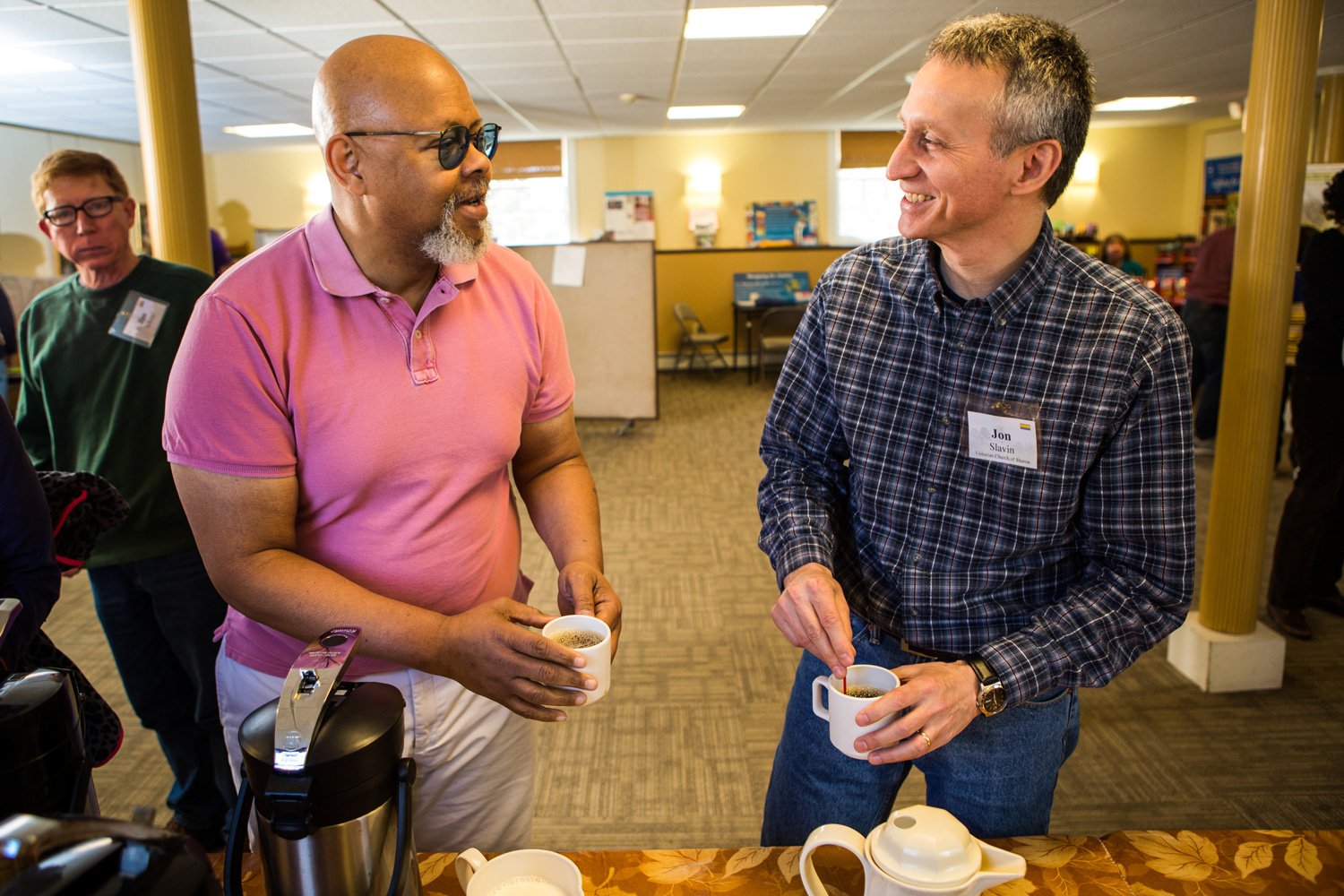
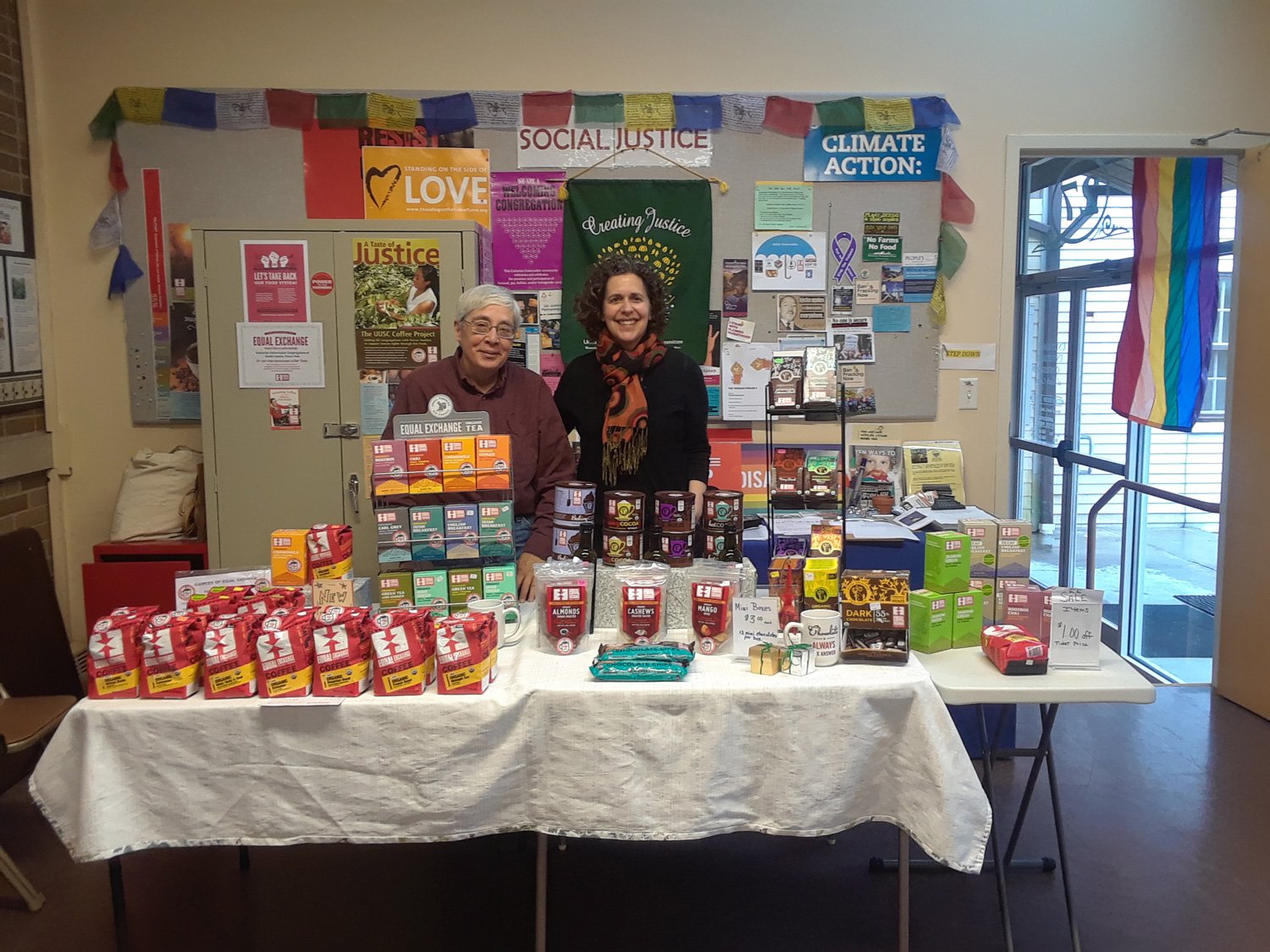
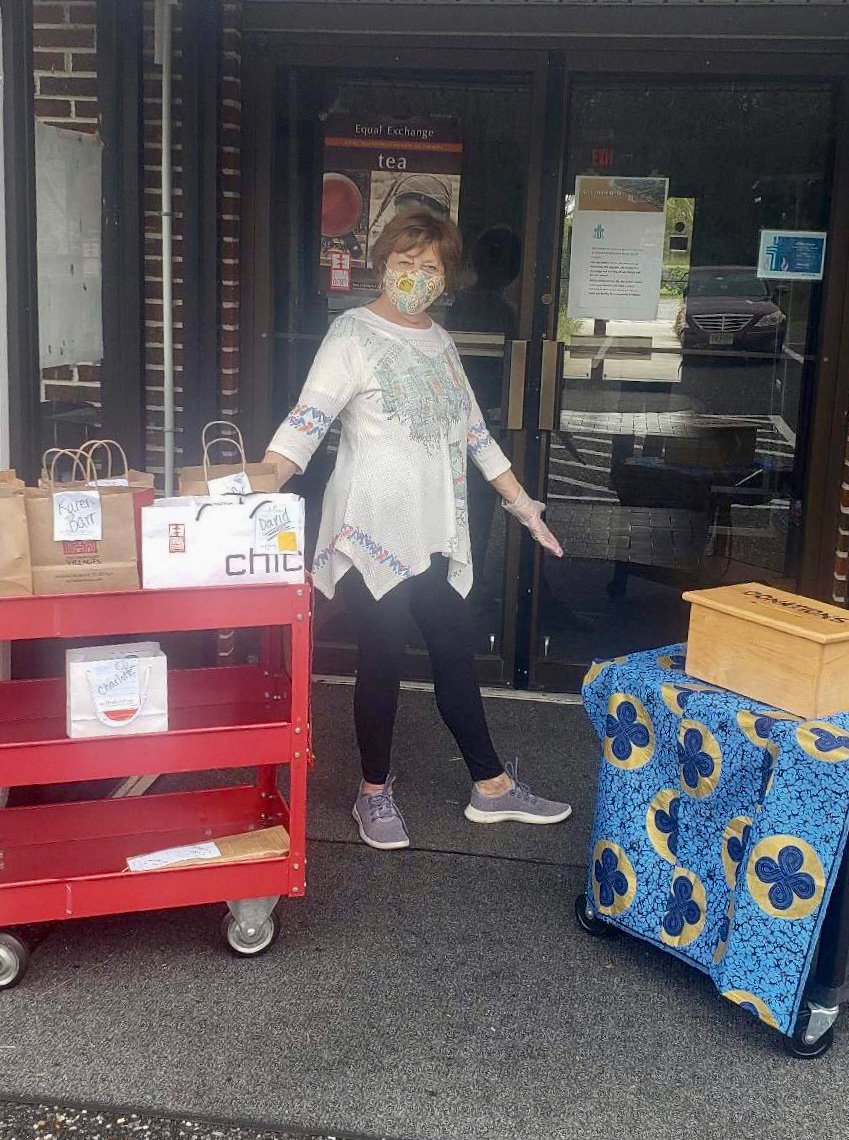
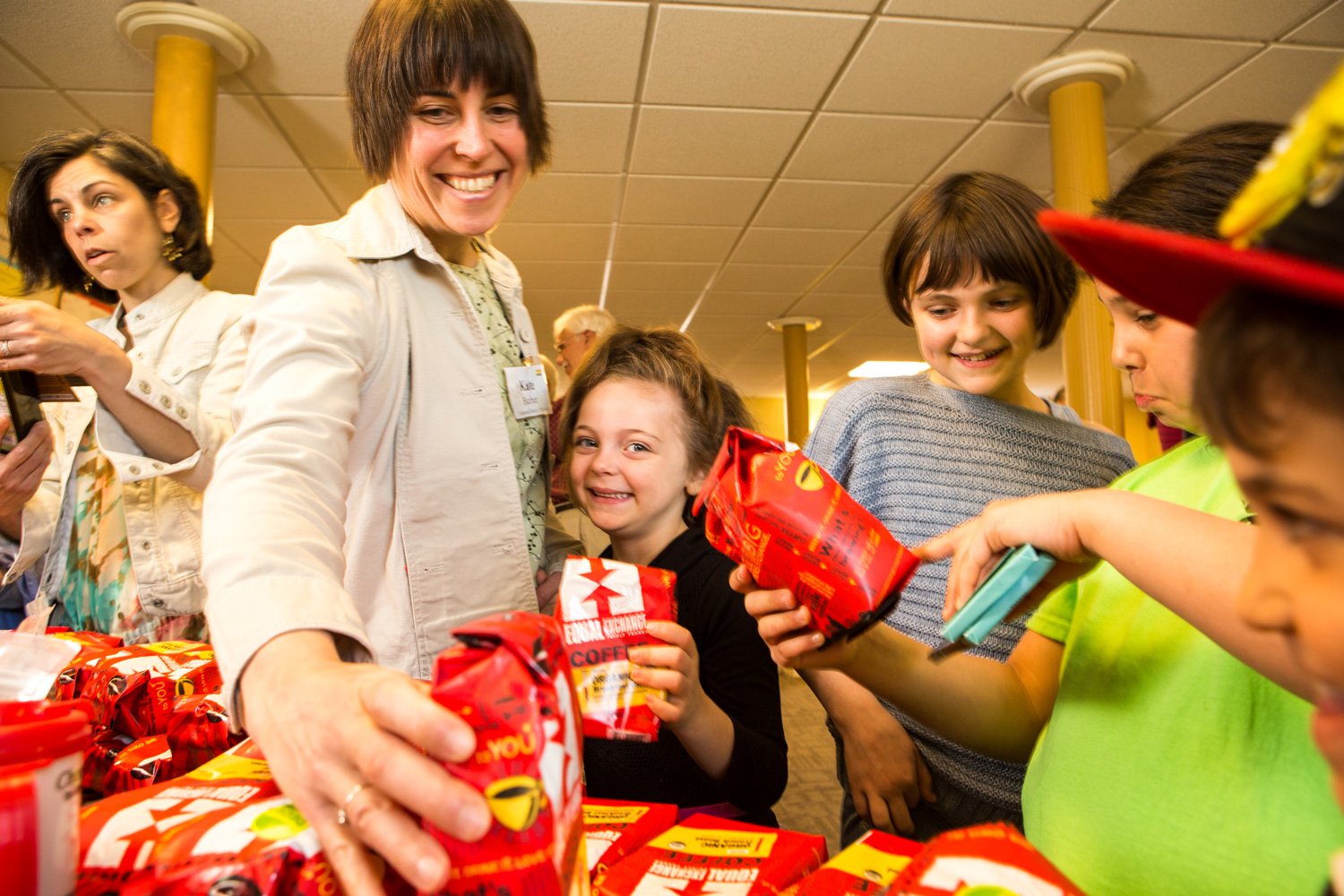

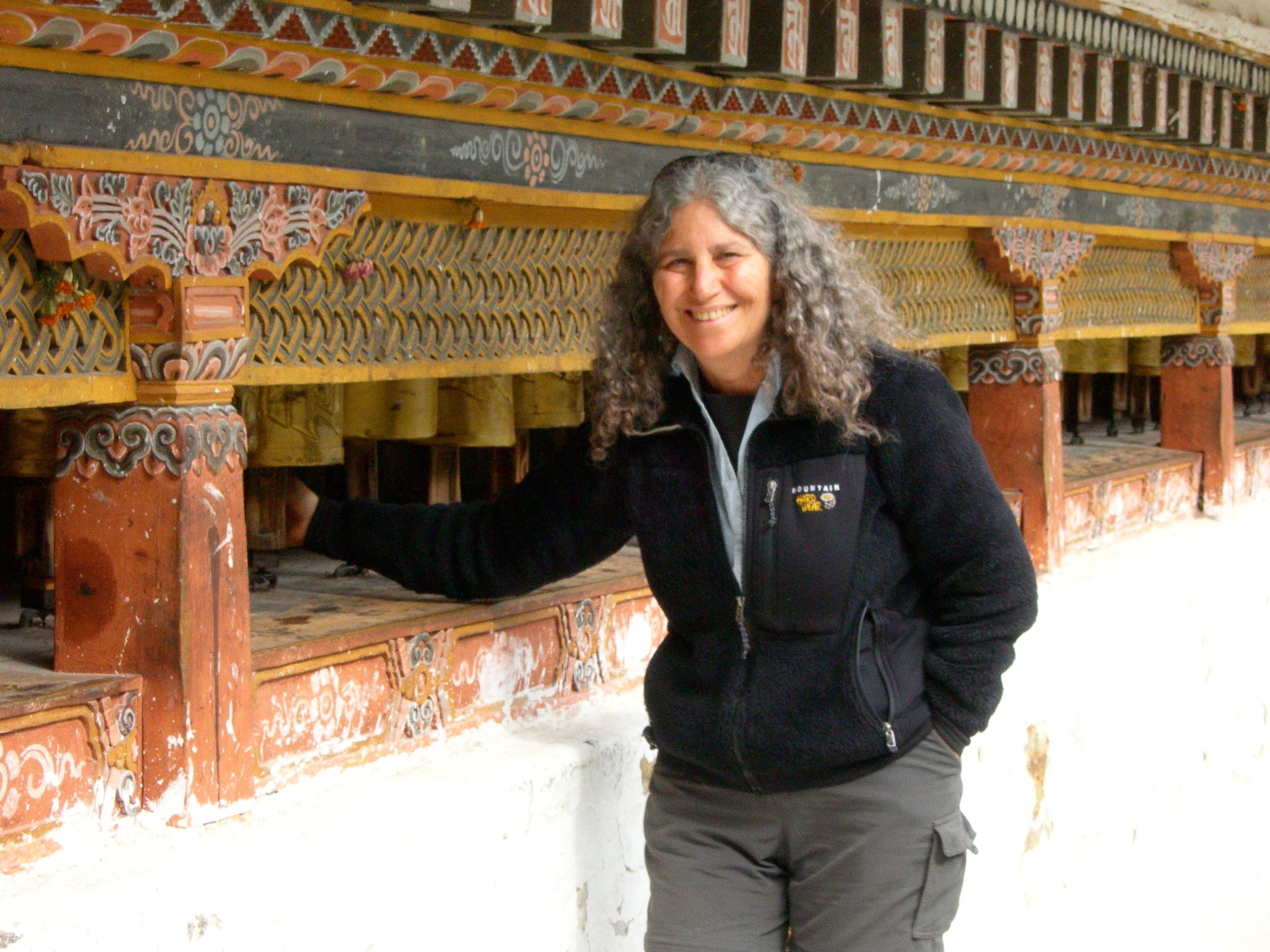
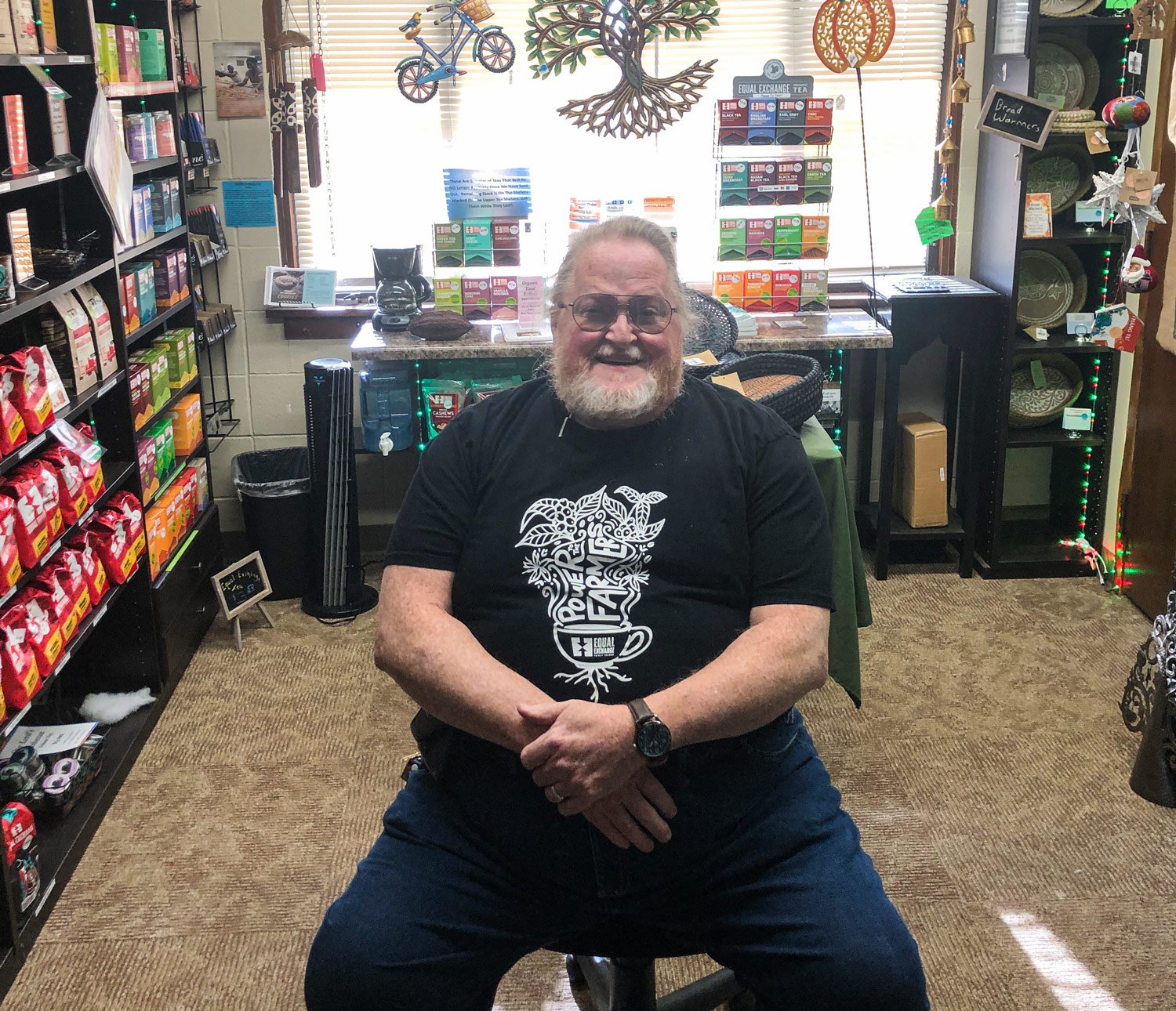
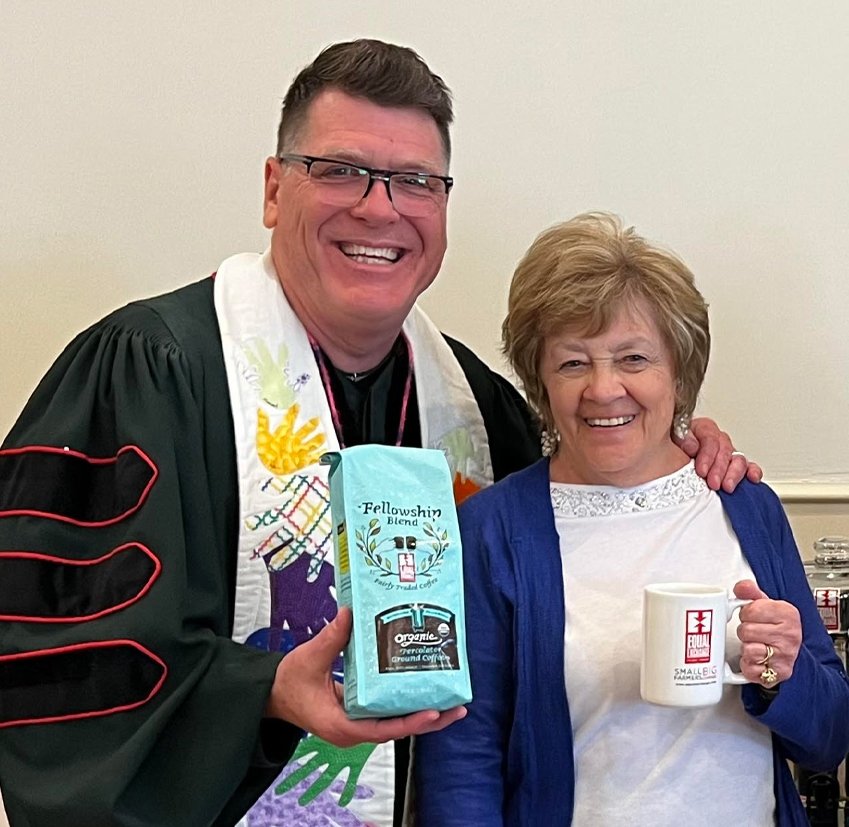
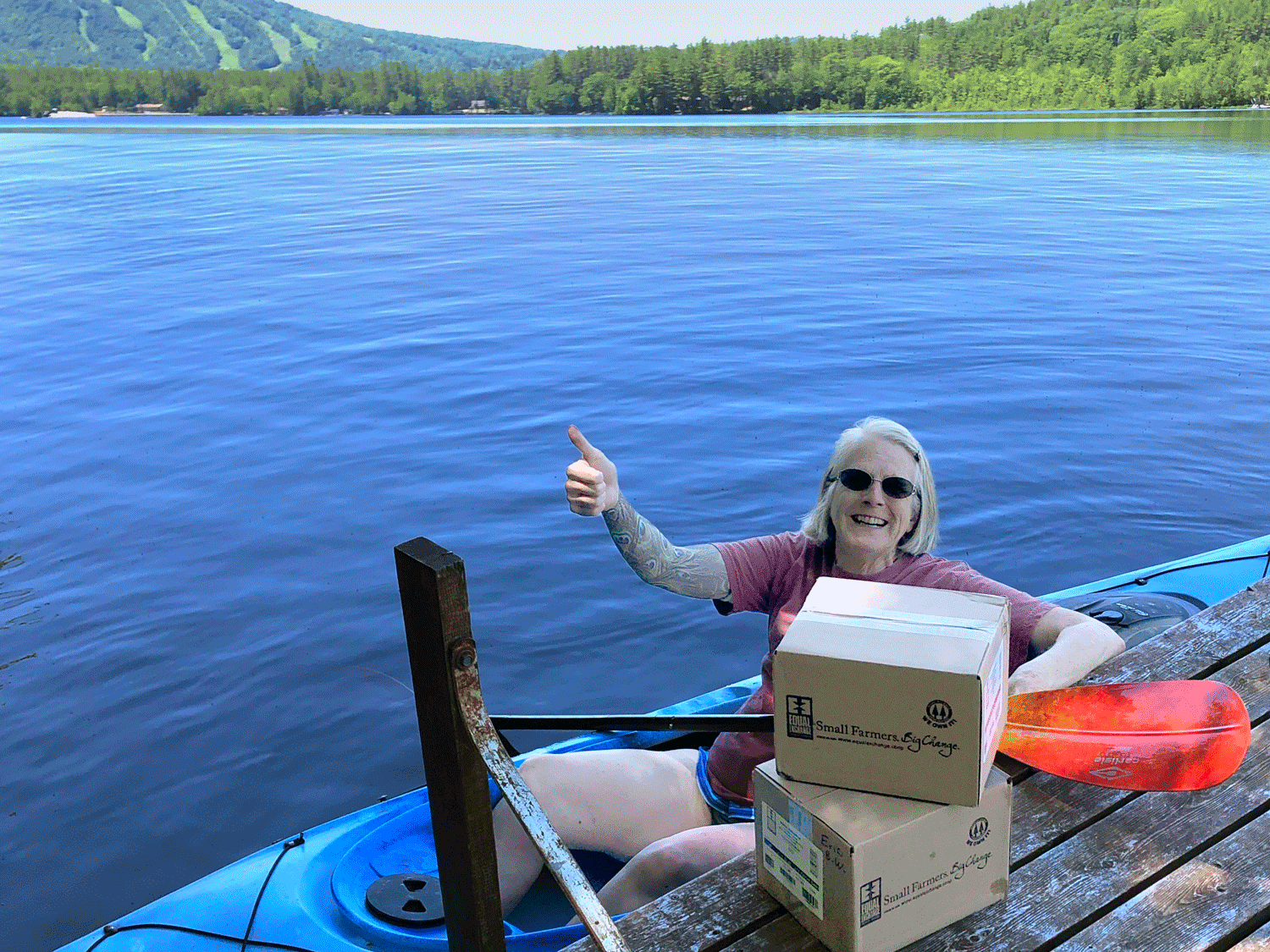
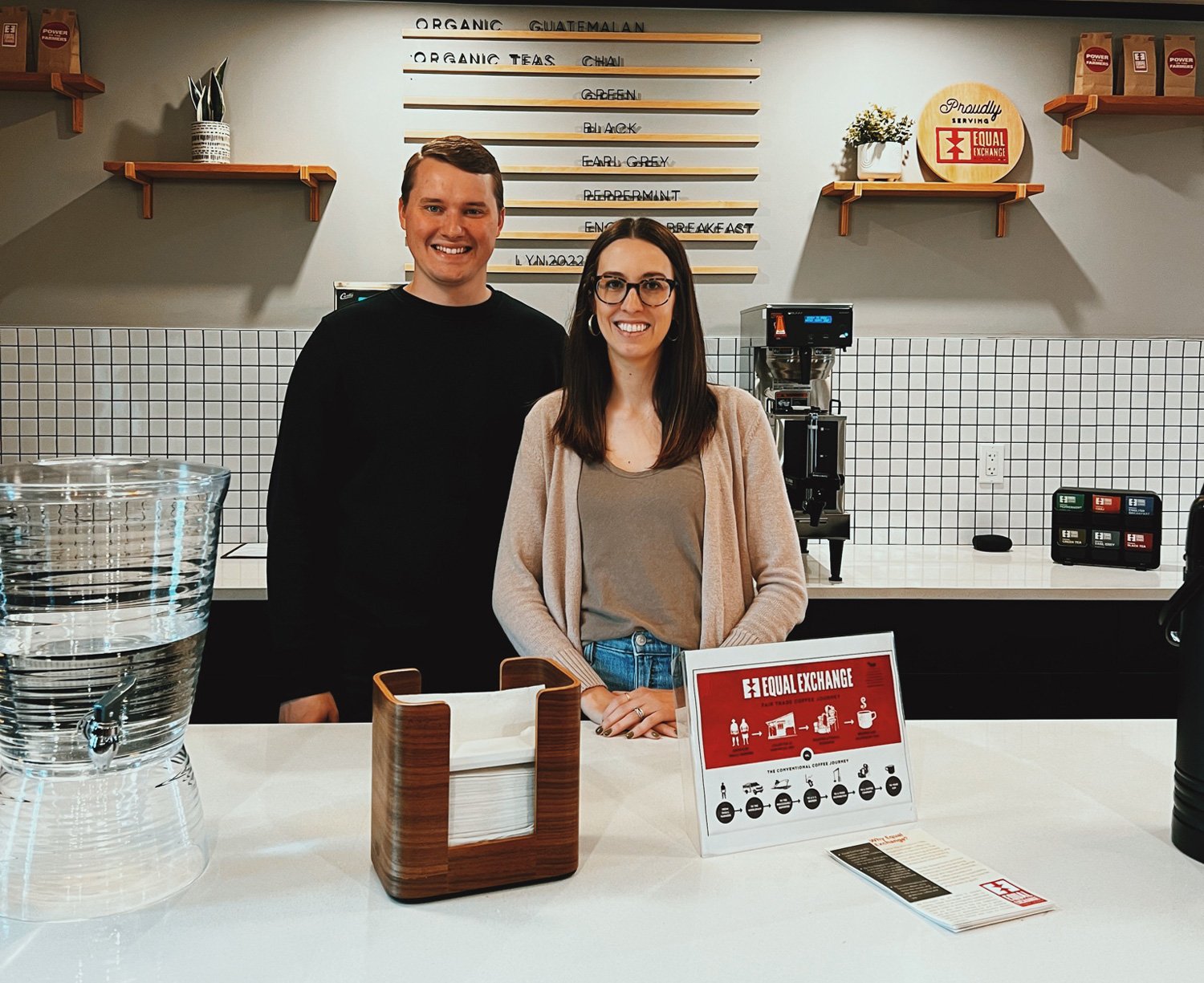
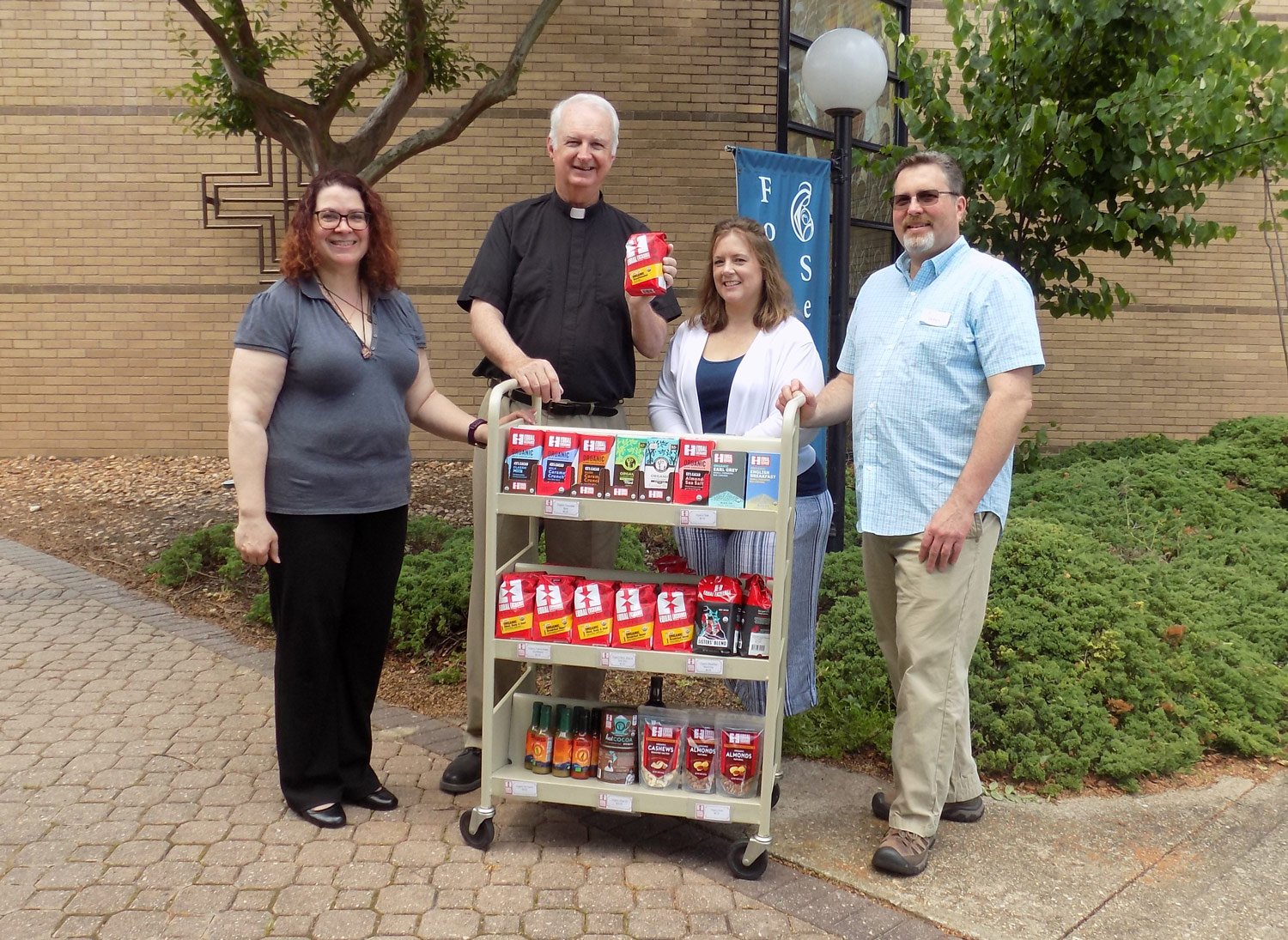
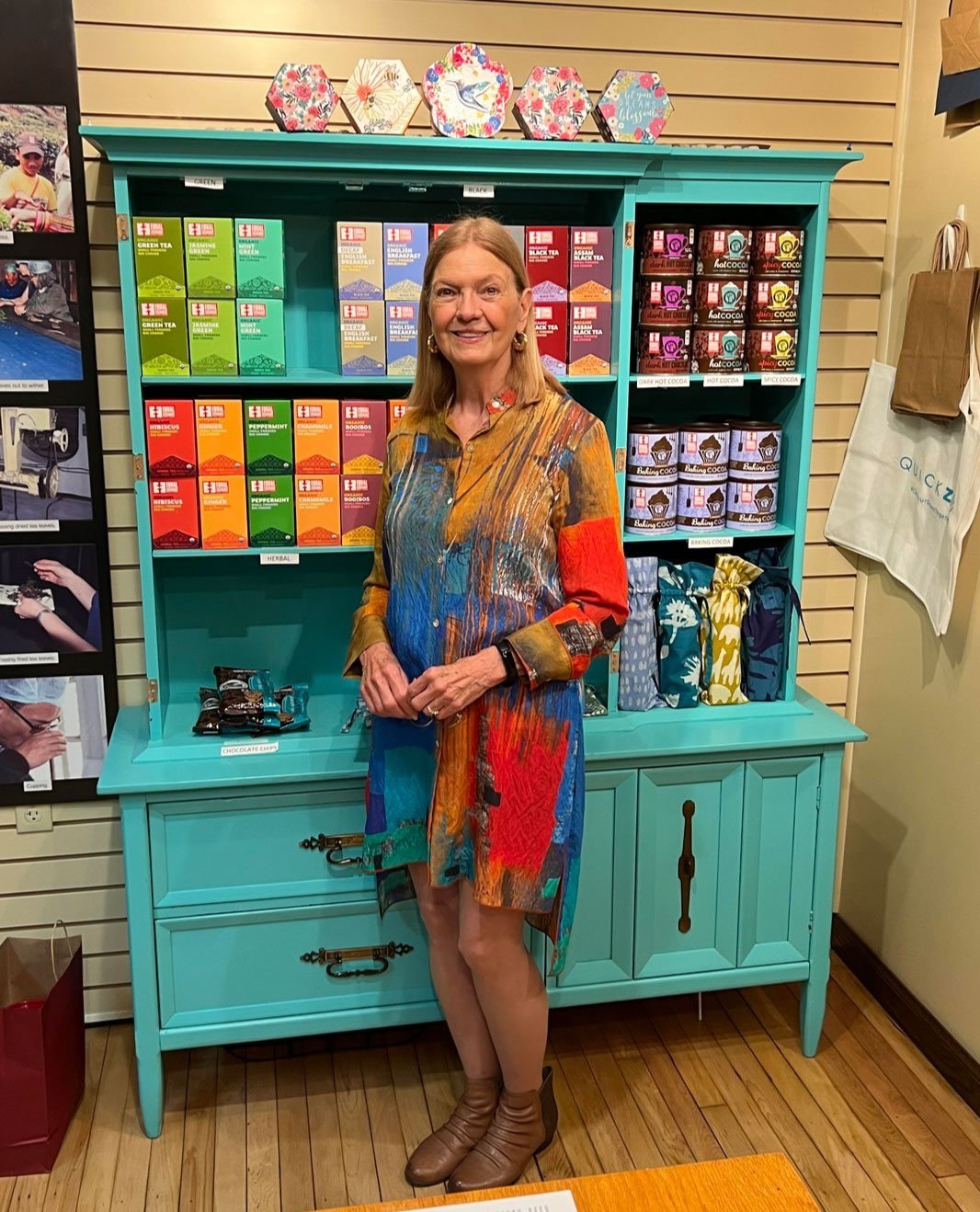
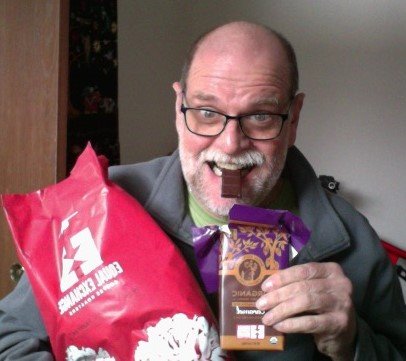
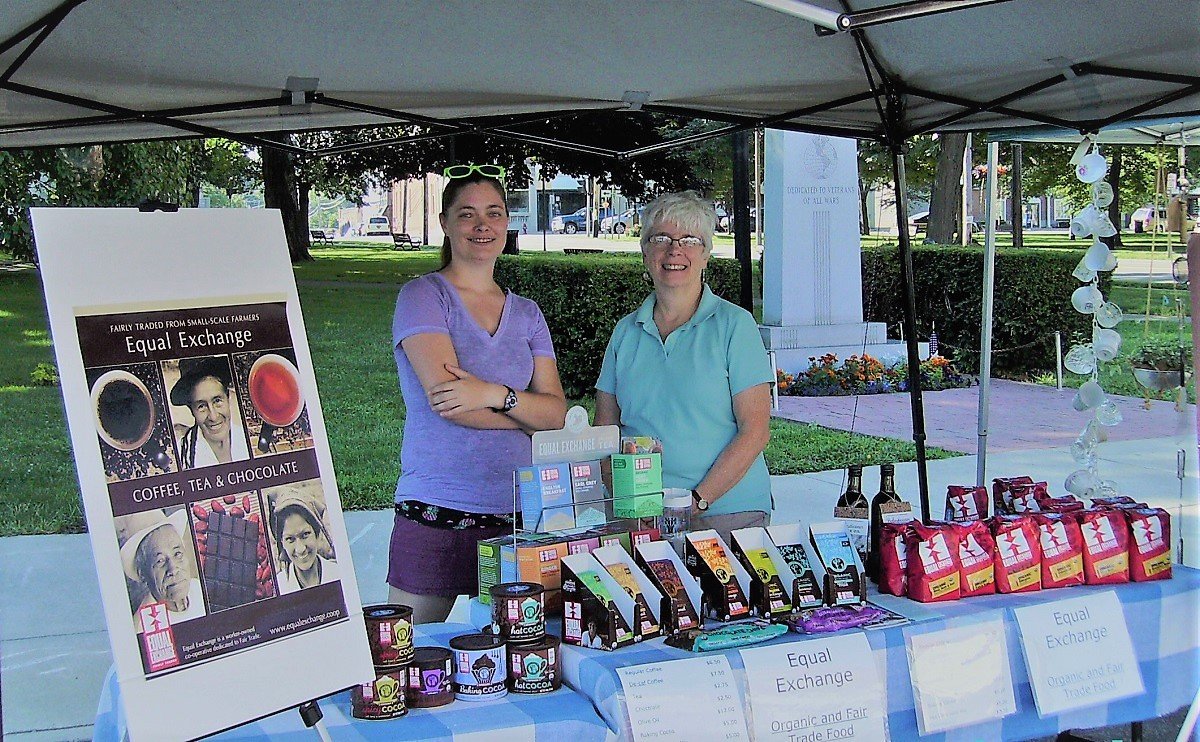
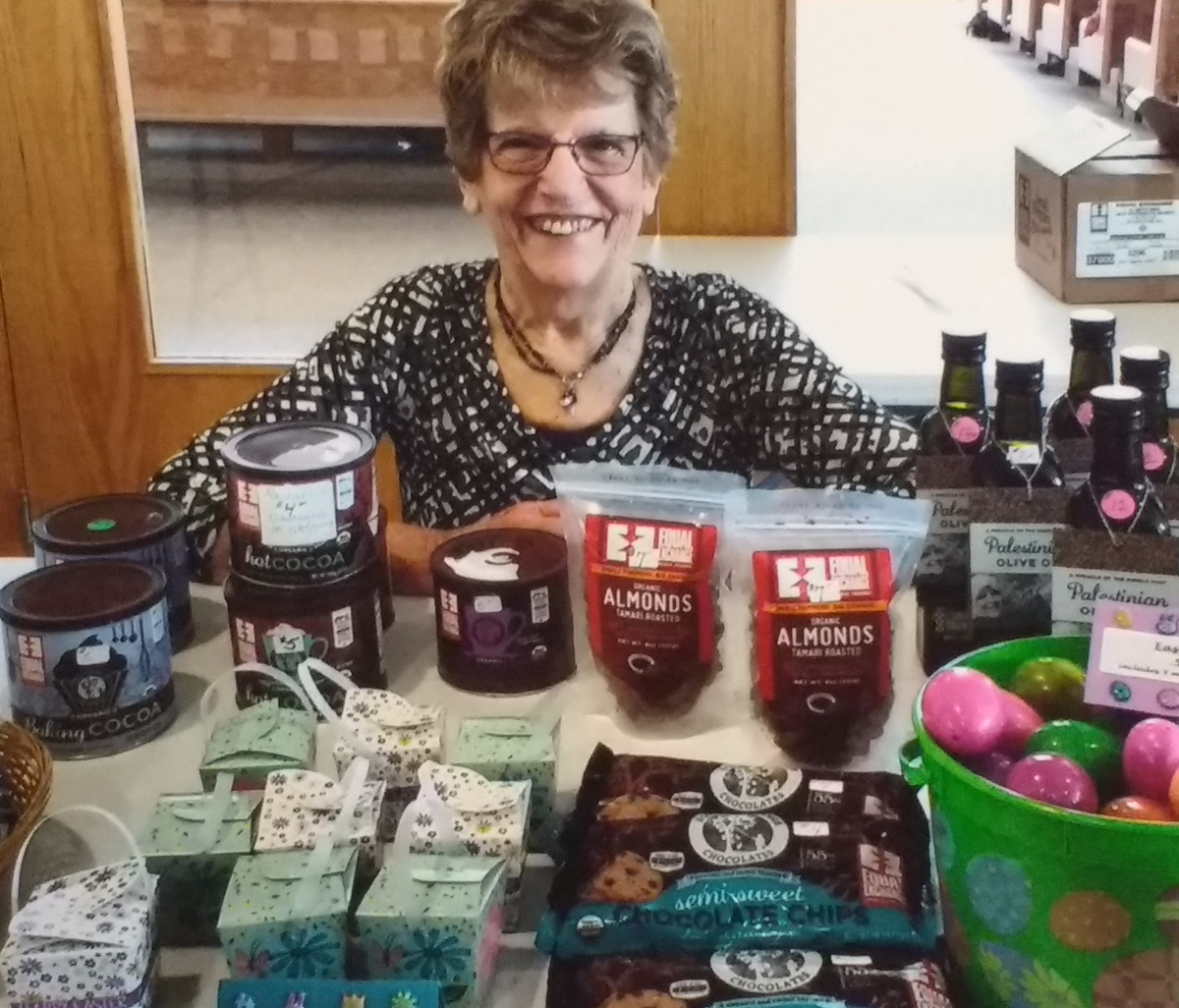
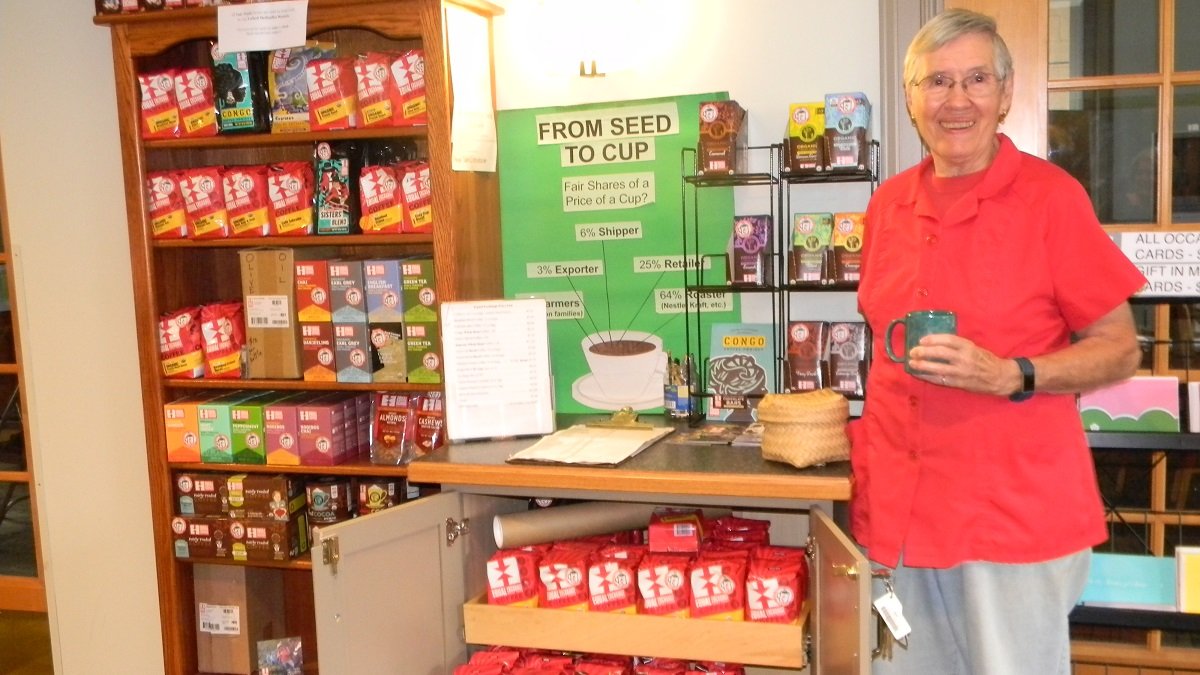
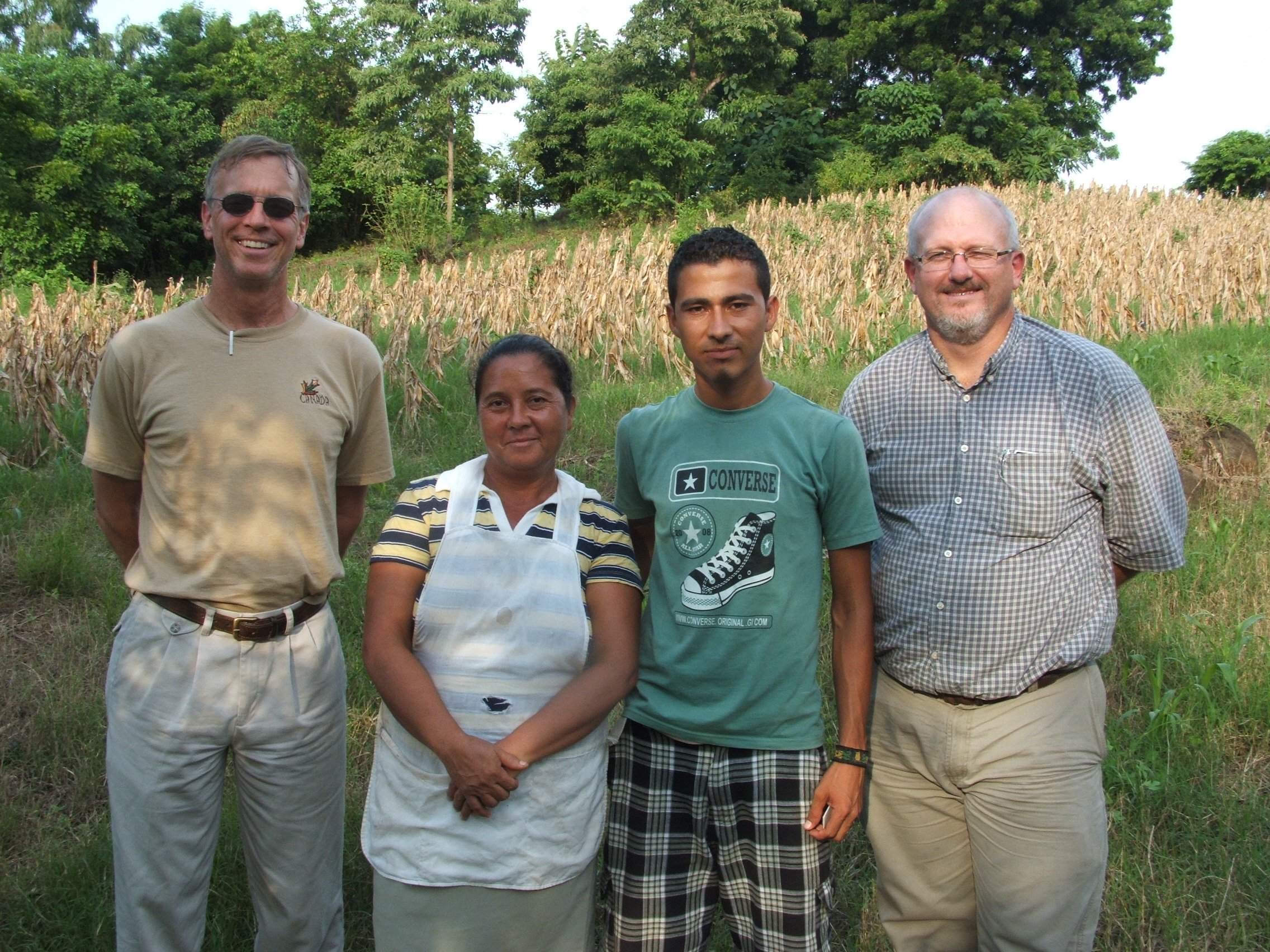
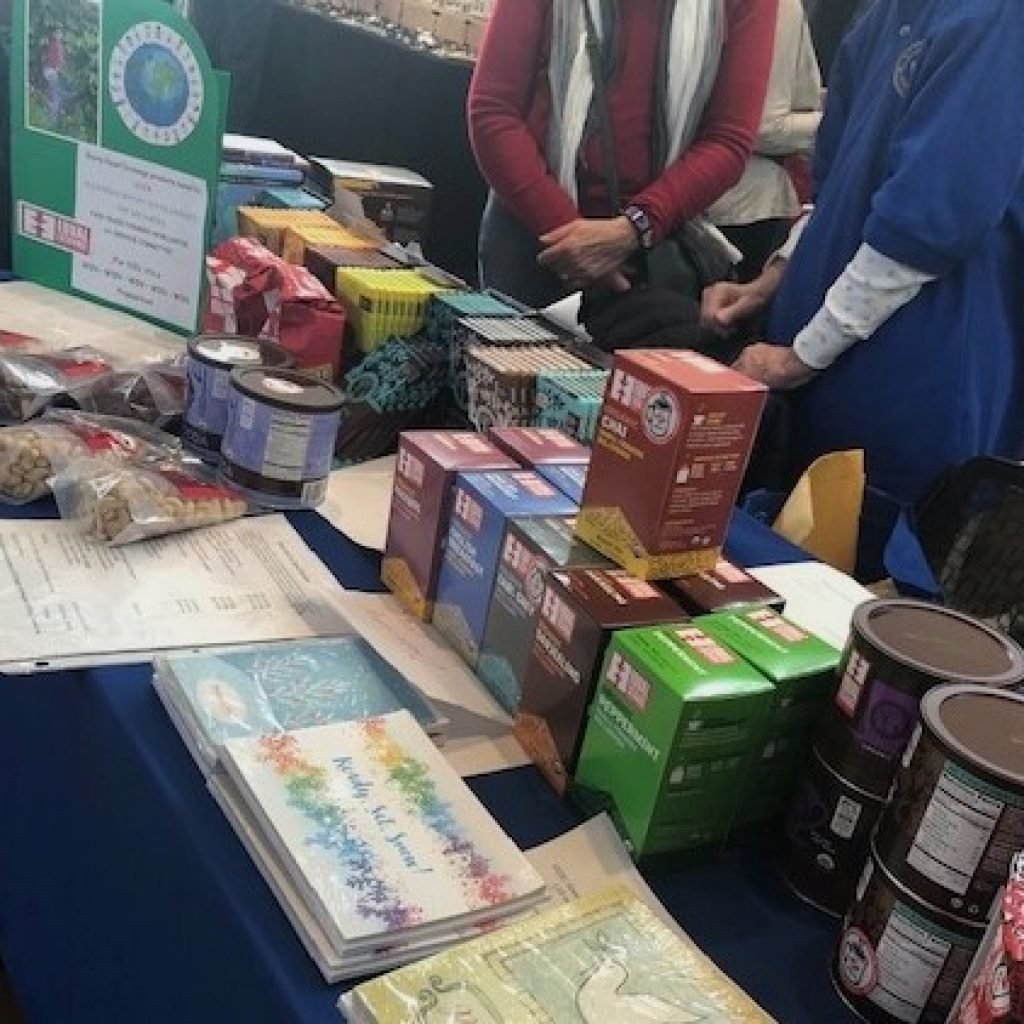
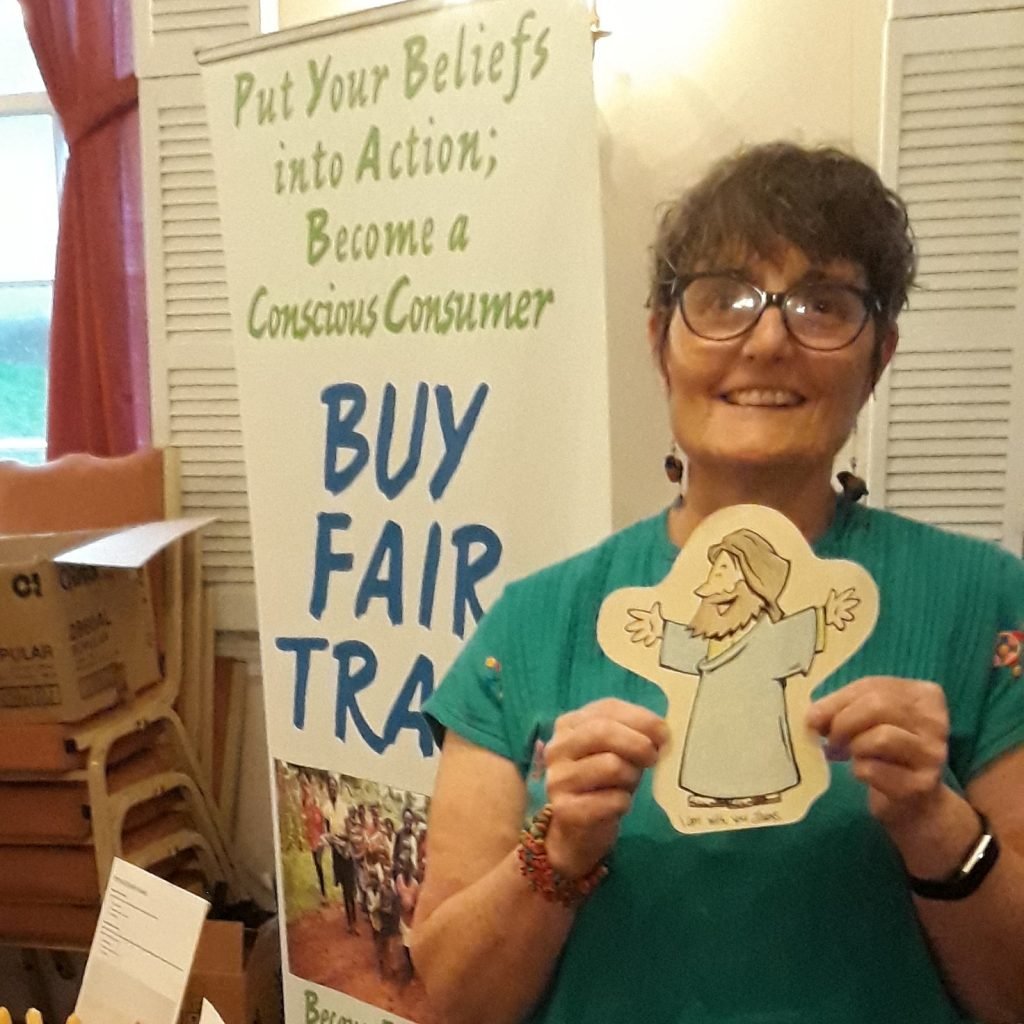
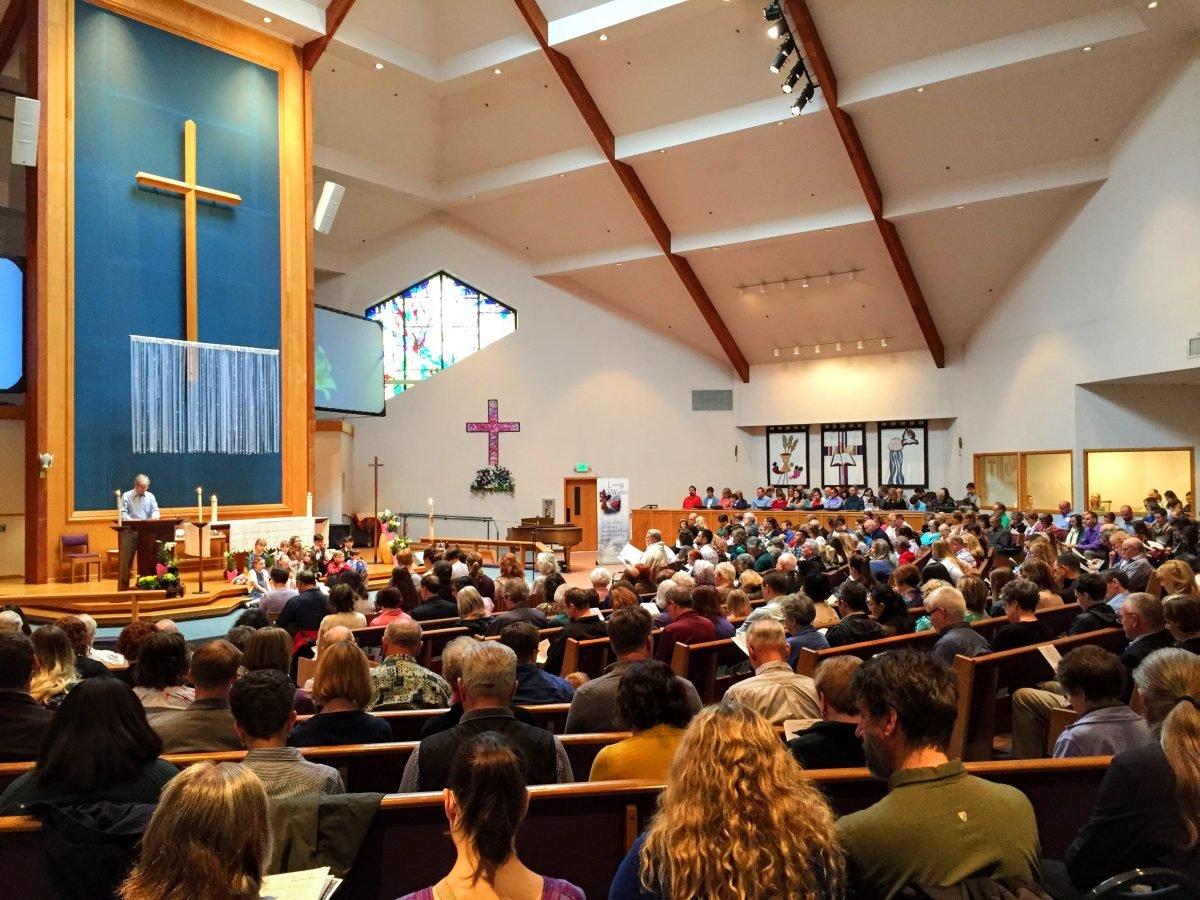
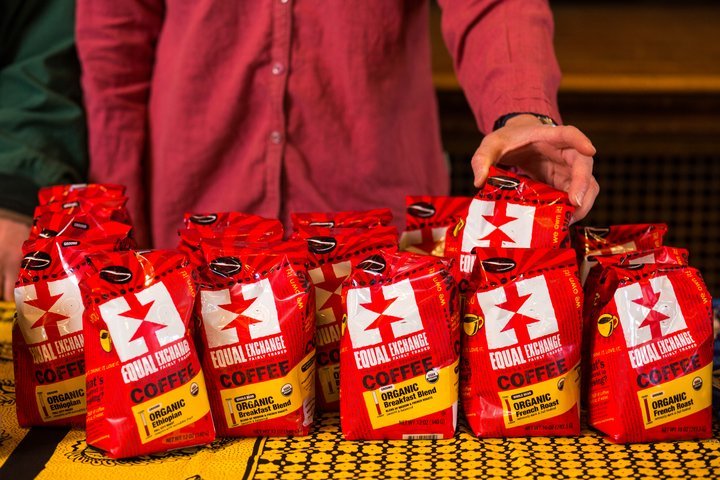
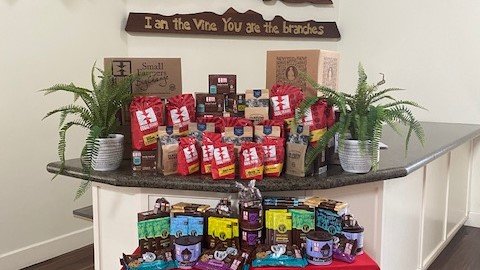
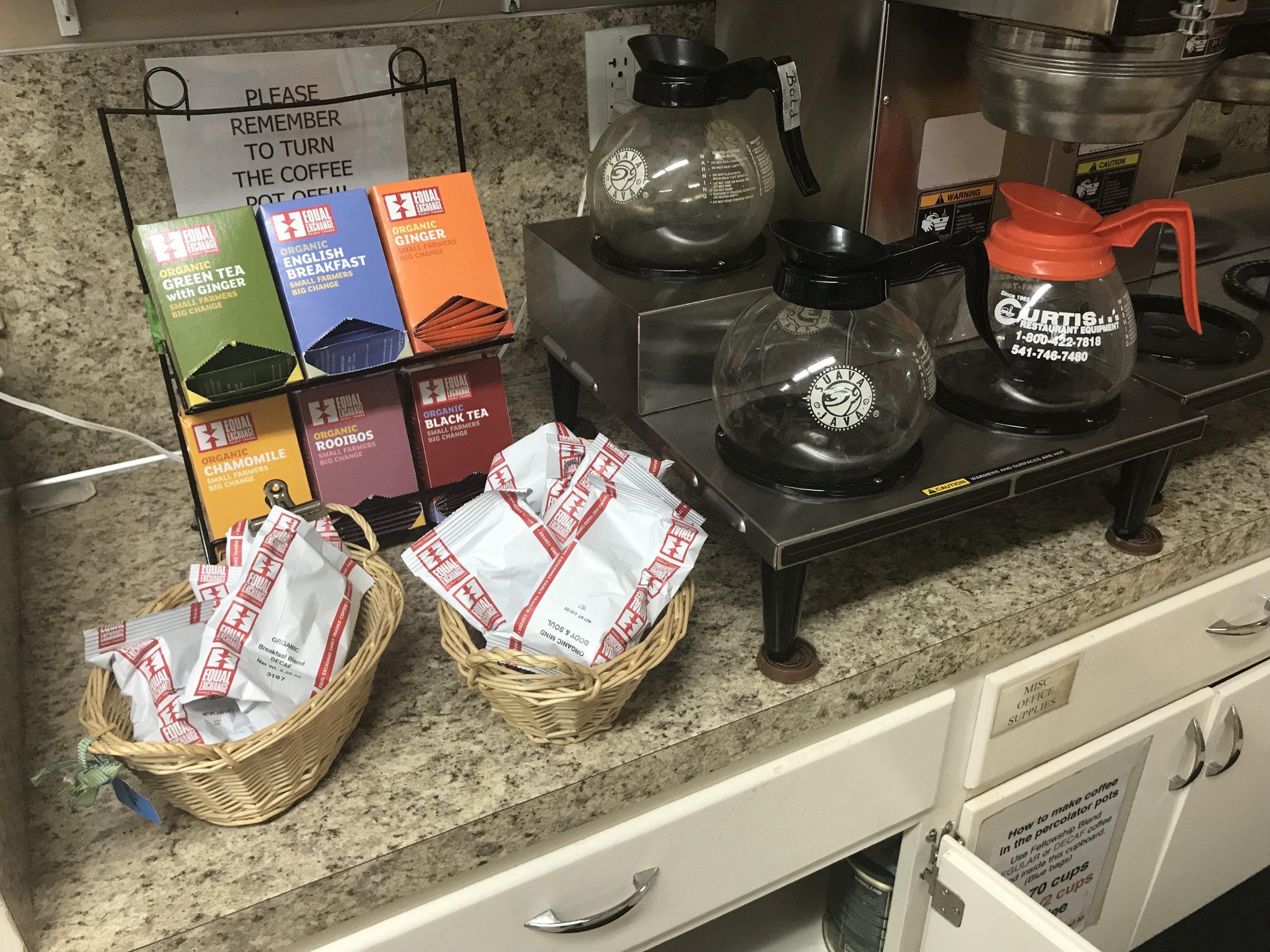
On a Saturday afternoon in late June, 90 people gathered for a festive Fair Trade Tea at the First Congregational United Church of Christ in Mankato, Minnesota.